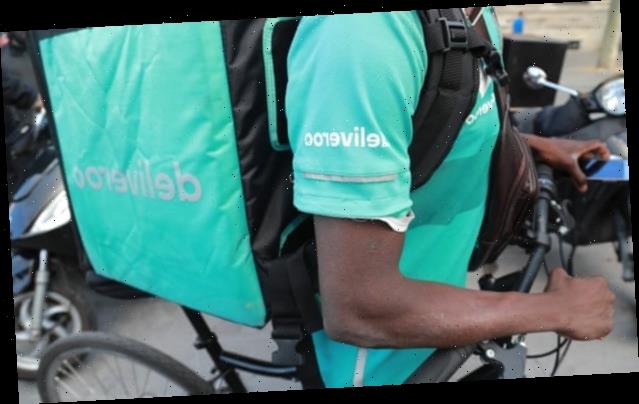If you order in with Deliveroo, I’m the guy who brings it to you, day or night, no matter the weather and whatever the risk. And those risks are greater now than I ever imagined they could be. With the UK on lockdown, I and thousands of other delivery workers are still out there trying to get provisions to people who need them – and at the same time keep roofs over our heads.
Yet it sometimes feels like we’re working with a timebomb in our backpack. And the government is not taking our role in the Covid-19 crisis seriously.
Rishi Sunak faces legal action from gig economy workers
I’m a father of three and I’m used to working 12-hour days. It was June 2018 when I swapped my green Starbucks apron for a bulky backpack and a pushbike. Like many, I was lured in by slogans like “Earn great money”, “Choose when you work”, “Make as much as £120 a day”. The dream of flexible, well-paid self-employment was real and I was ready to pedal after it. I’d been pedalling ever since, until two weeks ago when I developed a cough and breathing difficulties.
Even though I was desperate to protect those around me, making the decision to self-isolate was extremely difficult because my partner is on statutory maternity pay and the family relies on my income. We’re not eligible for statutory sick pay at Deliveroo, so I was relieved when the company announced a multimillion-pound Rider Support Fund that promised financial support for those forced to self-isolate. I wasn’t expecting much from Deliveroo but at least, in these extraordinary times, it was offering something. So I went into isolation.
Yet I didn’t see a penny. Deliveroo asked me to submit medical proof; but after calling 111 it was madeclear that for someone like me, getting proof was not feasible. So for practical purposes, the promise of hardship supportturned out to be an empty one: Deliveroo did not pay out. I have since found out that many other delivery and driver companies have promised sickness support to their workers but failed to deliver.
With no real rights and protections for gig economy workers like me, it’s going to get harder and harder for people who should self-isolate to make the right choice. In the end I was lucky to be able to rely on friends and family for help with essentials, but have still had to cut back on a lot of basics.
The chancellor, Rishi Sunak, has said that workers on zero-hours contracts are eligible for help under the job retention scheme. But that doesn’t apply to people like me because we’re not on contract. So he basically said I have to keep on waiting. That is not good enough. I can’t feed my family on promises from the chancellor, I need certainty and I need cash.
Last week the government classified couriers as key workers. The job we do is vital to the protection of public health, whether we’re delivering food or medical supplies. Every day of waiting could cost lives. That’s why the Independent Workers Union of Great Britain is taking legal action against the government for failing to protect precarious workers like me.
The tiny union beating the gig economy giants
And it’s not just the couriers. It’s the cleaners, the minicab drivers, the care workers, and many others who are all on the frontline, every day. We’ve been campaigning for years to win recognition of our basic employment rights. It shouldn’t be such a struggle to rectify this injustice, especially during a pandemic with so many thousands of lives hanging in the balance.
As long as self-isolation is a privilege for those who can afford it, there is a danger that workers will turn up for a shift when they shouldn’t, with all that risks that entails. It’s clear that many gig-economy employers won’t give sufficient priority to public health. The government says it will stand behind businesses – but how many people have to die before they finally step up and stand behind us too?
• Greg Howard is a delivery rider
Source: Read Full Article
